

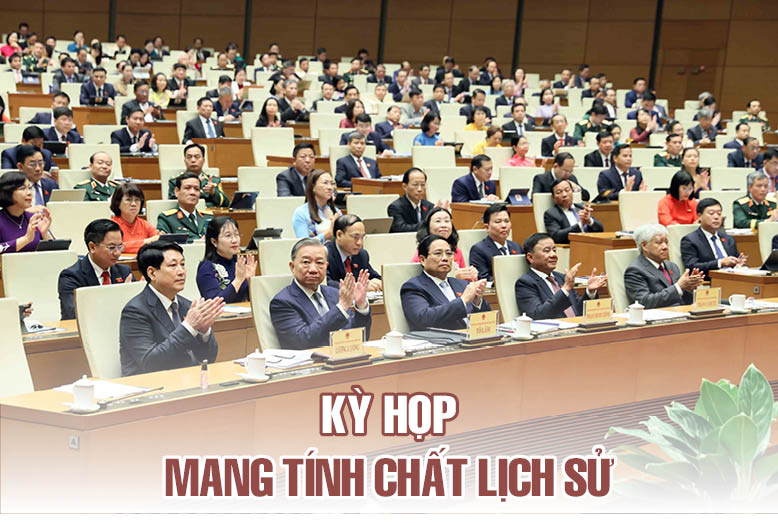
This session also implemented the Resolution of the 11th Conference of the 13th Party Central Committee - a historic conference, discussing policies in the new revolutionary period, bringing the country into an era of national growth.
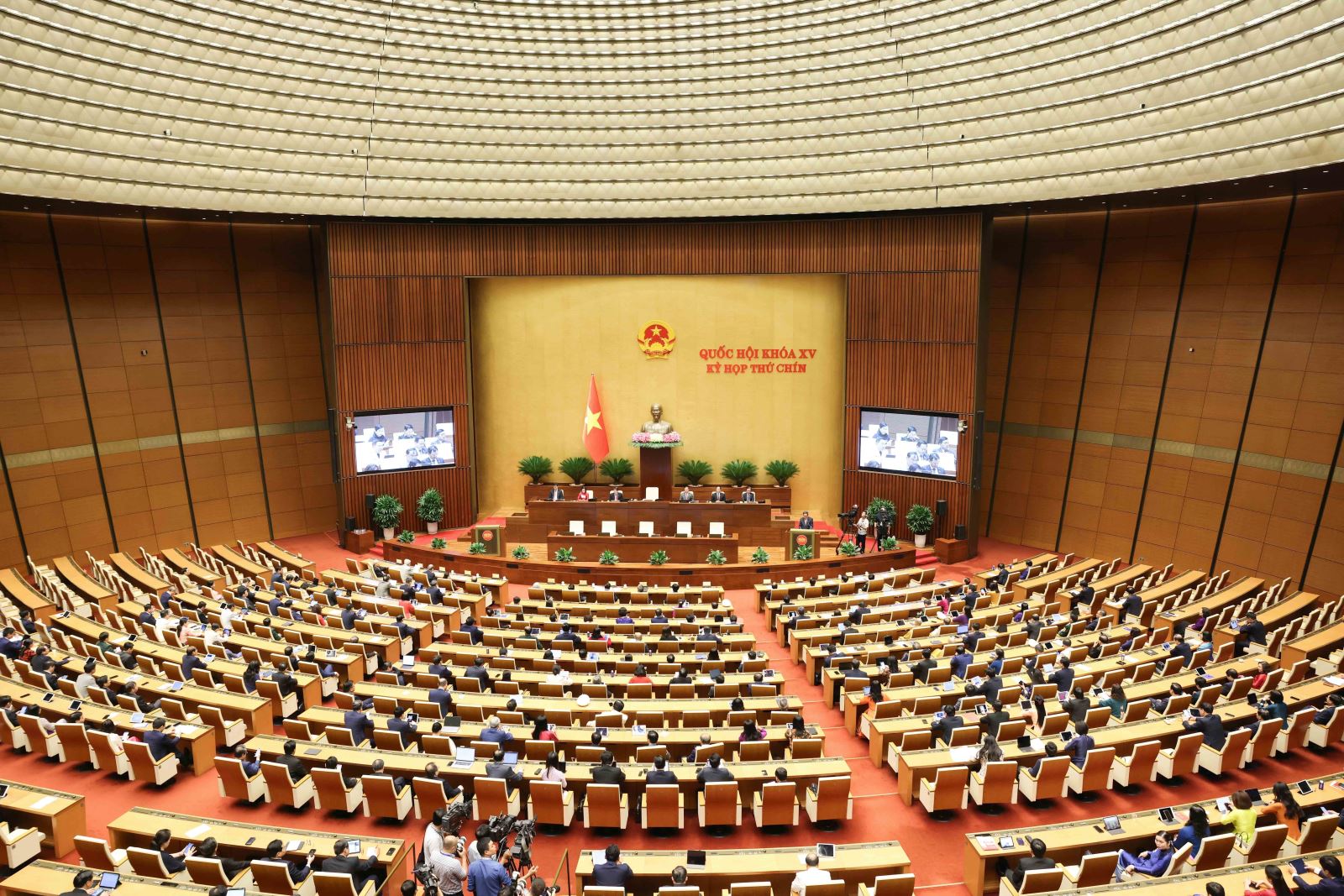
Panorama of the closing session of the 9th Session, 15th National Assembly .
The session is divided into two sessions, the first from May 5 to 29 and the second from June 11 to 27. At this session, the National Assembly will consider and decide on more than 50 contents on constitutional and legislative work, including resolutions on constitutional work; laws and resolutions on legislative work and many other important contents.
In particular, the National Assembly passed a Resolution amending and supplementing a number of articles of the 2013 Constitution, which is of special strategic importance both politically and legally, aiming to promptly institutionalize the Party's major policies, especially on the arrangement of the state apparatus in the direction of "streamlining, effectiveness, efficiency, close to the people, close to the people, close to reality".
At the same time, at the Session, the National Assembly considered groups of contents on socio- economics and the State budget; opinions and recommendations of voters and people sent to the Session; and results of supervision of the settlement of voters' recommendations at the 8th Session of the 15th National Assembly.
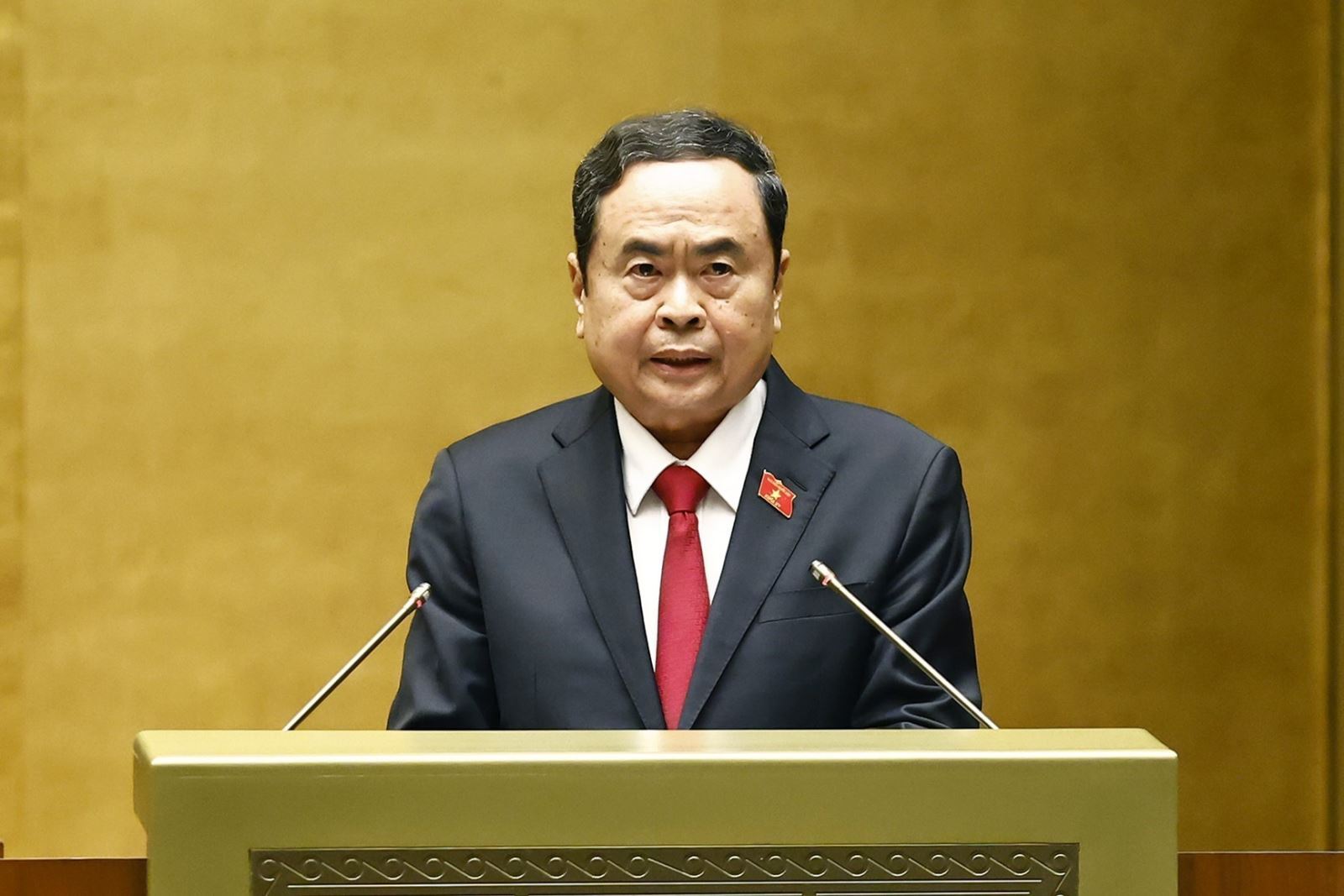
National Assembly Chairman Tran Thanh Man delivered the opening speech at the 9th Session of the 15th National Assembly.
According to the National Assembly Chairman, because of these innovations, the National Assembly has considered and passed a large number of laws and resolutions (the National Assembly of all terms has issued 213 laws and codes that are in legal effect). The 7th and 8th regular sessions and the 9th extraordinary session alone passed 33 laws; the 9th session passed more than 34 laws. Thus, the enacted laws are 67, accounting for 31.4% of the total 213 laws.
Sharing about the 9th Session of the 15th National Assembly, National Assembly Chairman Tran Thanh Man said that under the leadership and direction of the Politburo, the Secretariat, and General Secretary To Lam, the Session took place with an atmosphere of determination, innovation, and a high sense of responsibility of the National Assembly, the Government, and relevant agencies; and was followed by voters and people with excitement, agreement, and expectation, especially the revolution in rearranging the organization of cadres and administrative units and deciding on many particularly important issues of the country.
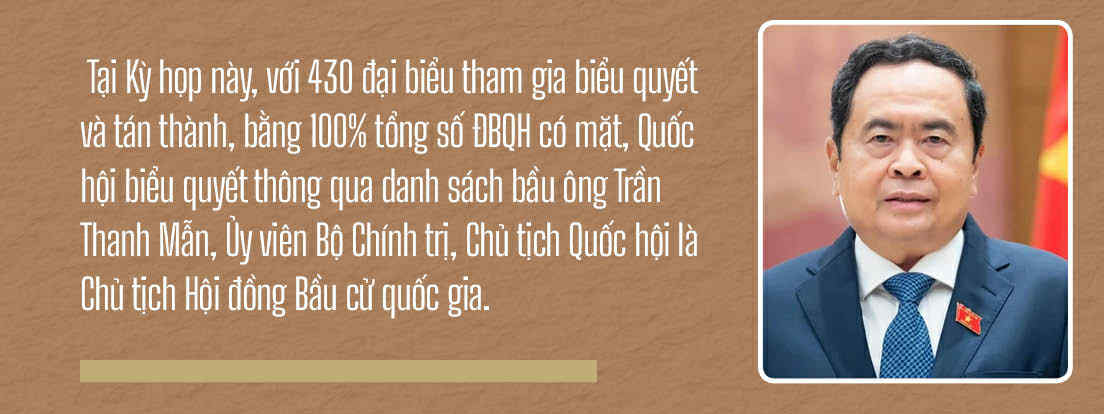 The National Assembly Chairman pointed out that in recent times, the activities of the National Assembly and the National Assembly Standing Committee have undergone many innovations, bringing about practical results. In legislative work, the Politburo issued Conclusion No. 19 and oriented the Law-making Program for the 15th National Assembly, which clearly stated 137 specific legislative tasks that need to be carried out.
The National Assembly Chairman pointed out that in recent times, the activities of the National Assembly and the National Assembly Standing Committee have undergone many innovations, bringing about practical results. In legislative work, the Politburo issued Conclusion No. 19 and oriented the Law-making Program for the 15th National Assembly, which clearly stated 137 specific legislative tasks that need to be carried out.
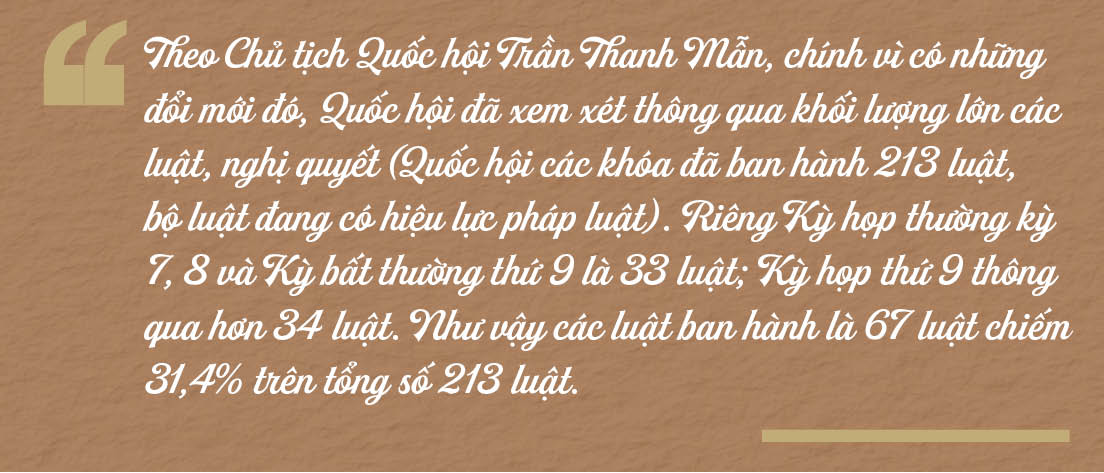
Before each session, the National Assembly Party Committee and the Government Party Committee (formerly the National Assembly Party Delegation and the Government Party Personnel Committee) hold two meetings to thoroughly discuss and agree on the Session Agenda and the contents of the National Assembly's reports. Preparations are made early and remotely to improve the quality of the National Assembly's activities at the session. Extraordinary sessions are held to promptly resolve urgent issues of the country, especially issues of socio-economic development, ensuring national defense and security of the National Assembly.
National Assembly Chairman Tran Thanh Man shared that since 2023, the work of organizing the Conference to implement the Law and Resolution after each session has been done methodically and seriously. The National Assembly Chairman also emphasized that the National Assembly has innovated its thinking in law-making: The Law only regulates issues within the National Assembly's authority, not legalizing issues under circulars and decrees. Shifting the management thinking to unlocking resources, strengthening decentralization and decentralization thoroughly and substantially, ensuring sufficient capacity for individuals and decentralized agencies to be able to organize and perform the work. Creating favorable conditions and giving proactive and flexible authority to the Government in the process of organizing the implementation of laws, linking law-making and law enforcement to achieve the highest efficiency.
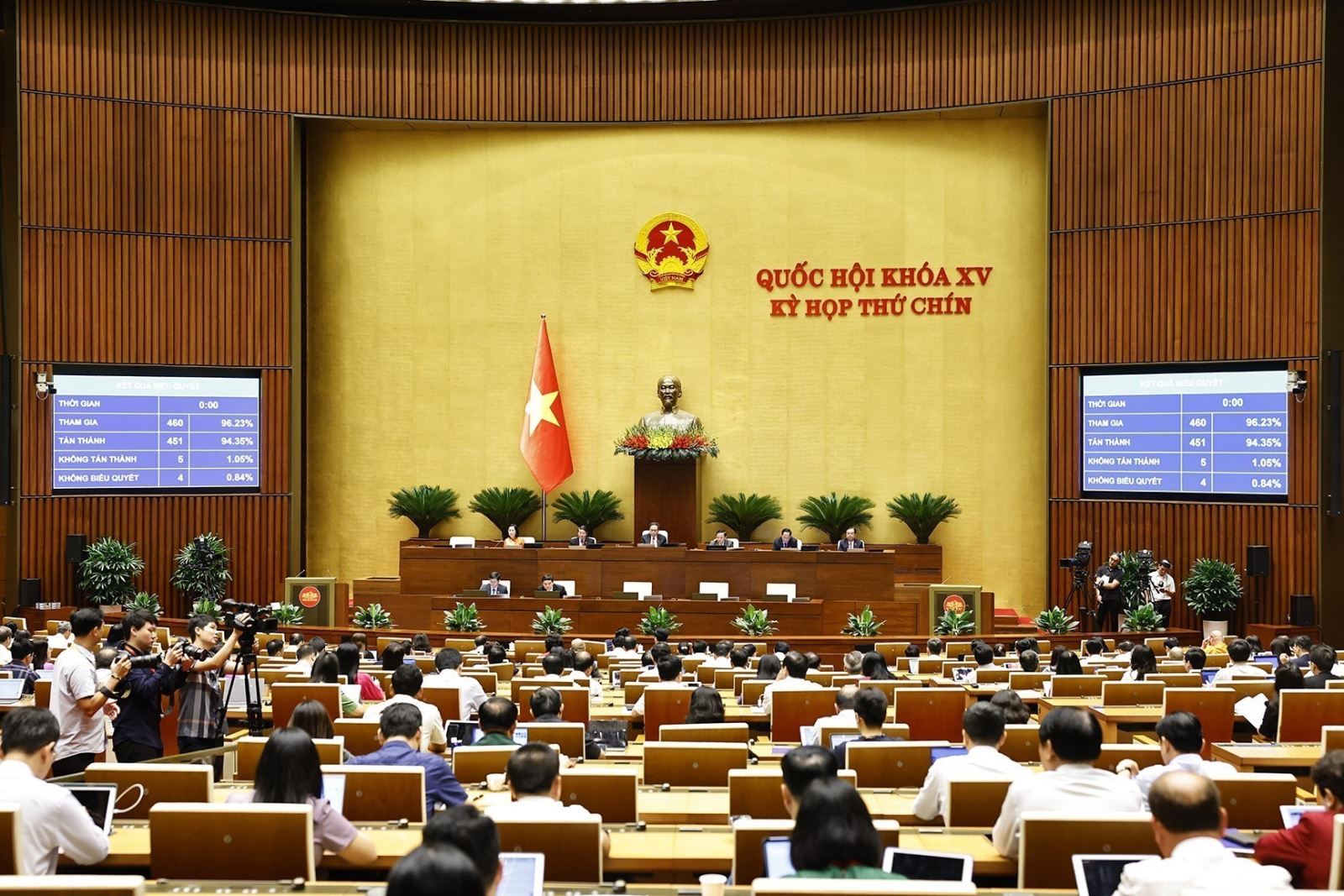
The National Assembly voted to pass the Resolution of the National Assembly on amending and supplementing a number of articles of the 2013 Constitution.
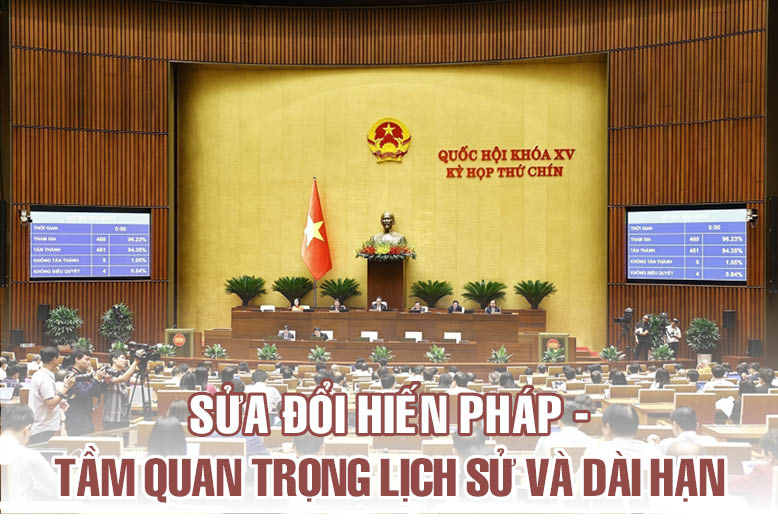
June 16, 2025 is of historical significance because the National Assembly passed with a very high number of votes the Resolution amending and supplementing a number of articles of the Constitution of the Socialist Republic of Vietnam and the Law on Organization of Local Government (amended). This is a major event, of historical significance for Vietnam, creating a solid legal foundation for the organization and operation of local governments according to the 2-level local government organization model, organized for the first time in Vietnam, to serve the implementation of major policies of the Party and State of Vietnam on national development in all fields, ensuring national defense, security and international integration.
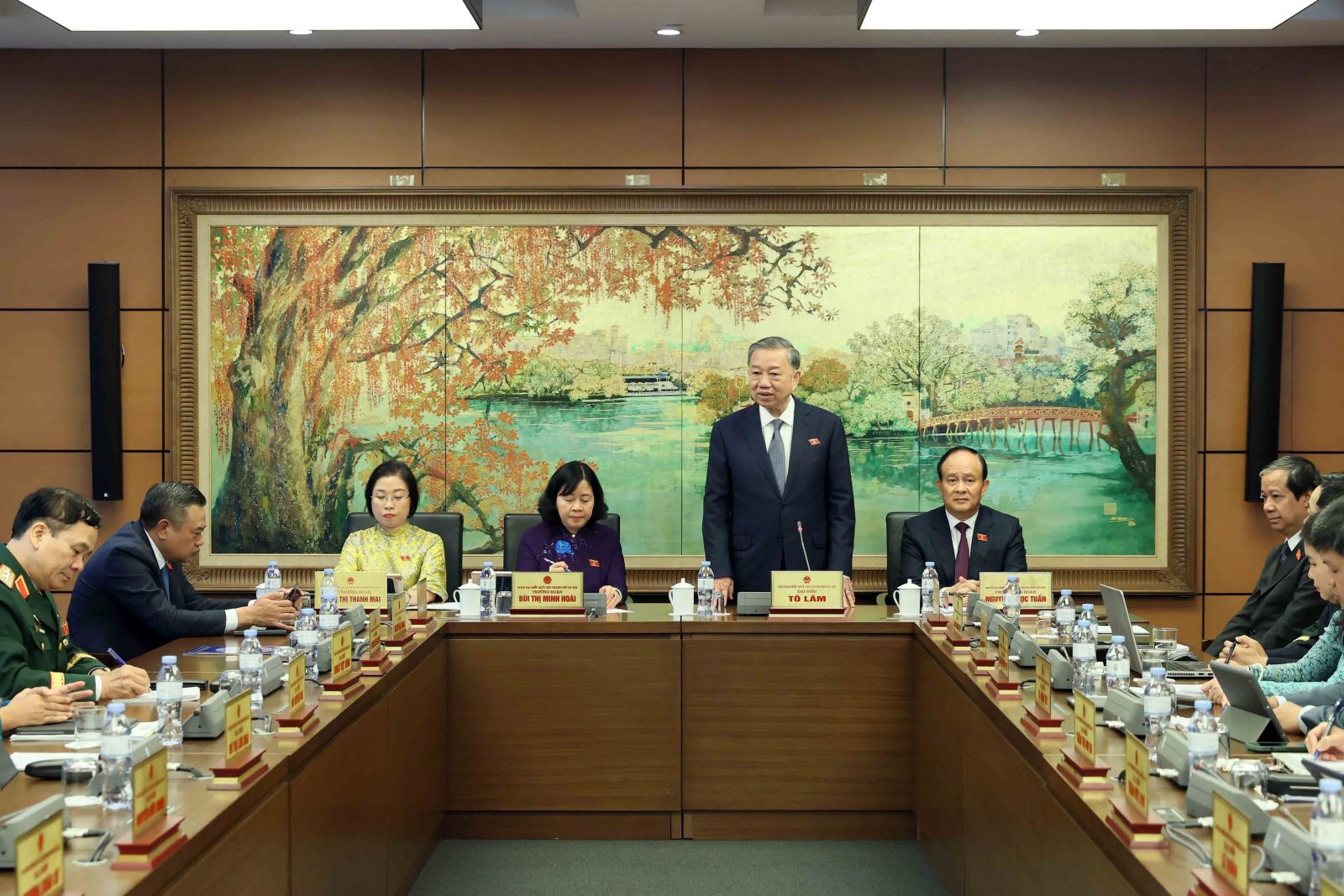
General Secretary To Lam speaks at the discussion group during the 9th session of the 15th National Assembly.
The major goal of amending and supplementing the Constitution and reorganizing the local government model this time is to build a government that is closer to the people, serves the people better, and at the same time opens up a new situation in national development with a long-term vision, at least for the next 100 years.
Ms. Nguyen Phuong Thuy, Vice Chairwoman of the National Assembly’s Committee on Law and Justice, said that since the country’s founding, Vietnam has had five Constitutions. Of which, the 2013 Constitution is the Constitution of the period of comprehensive and synchronous economic and political renovation, meeting the requirements of national construction and defense and international integration.
The Vice Chairman of the Committee on Law and Justice emphasized that in the context of Vietnam entering an era of comprehensive innovation and sustainable development of the nation, under the leadership of the Communist Party of Vietnam, there is an urgent need to amend and supplement a number of articles of the 2013 Constitution to create a constitutional basis for the implementation of the task of streamlining the organization of the political system and perfecting the 2-level local government model in the direction of being closer to the people, serving the people better, and at the same time opening up a new development future for the country.
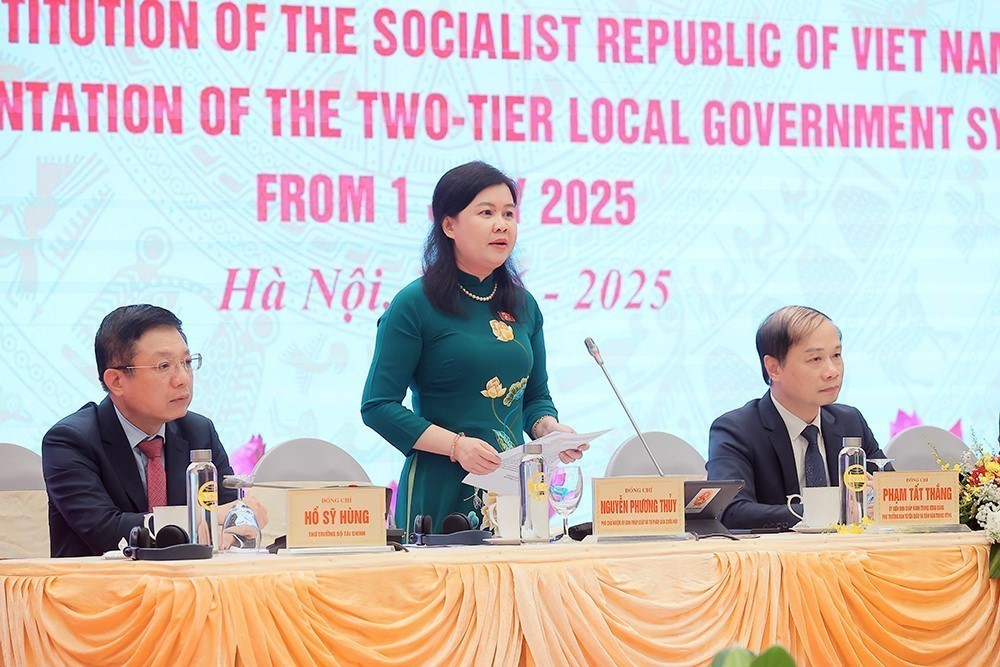
Vice Chairwoman of the National Assembly's Committee on Law and Justice Nguyen Phuong Thuy answered reporters' questions at the International Press Conference on amending and supplementing a number of articles of the Constitution and implementing the two-level local government organization model from July 1, 2025.
From May 6 to June 5, 2025, there were more than 280 million comments from the people, agencies and organizations at both central and local levels on all contents and provisions of the draft Resolution with a very high approval rate, averaging 99.75%.
Regarding the content of the Resolution, Vice Chairman of the Committee on Law and Justice Nguyen Phuong Thuy said that Resolution No. 203/2025/QH 15 amending and supplementing a number of articles of the Constitution of the Socialist Republic of Vietnam, which has just been passed by the National Assembly, consists of 2 articles, of which Article 1 amends and supplements 5 out of a total of 120 articles of the current Constitution, including Article 9; Article 10; Clause 1, Article 84; Article 110 and Article 111. Article 2 of the Resolution stipulates the effective date and transitional provisions.
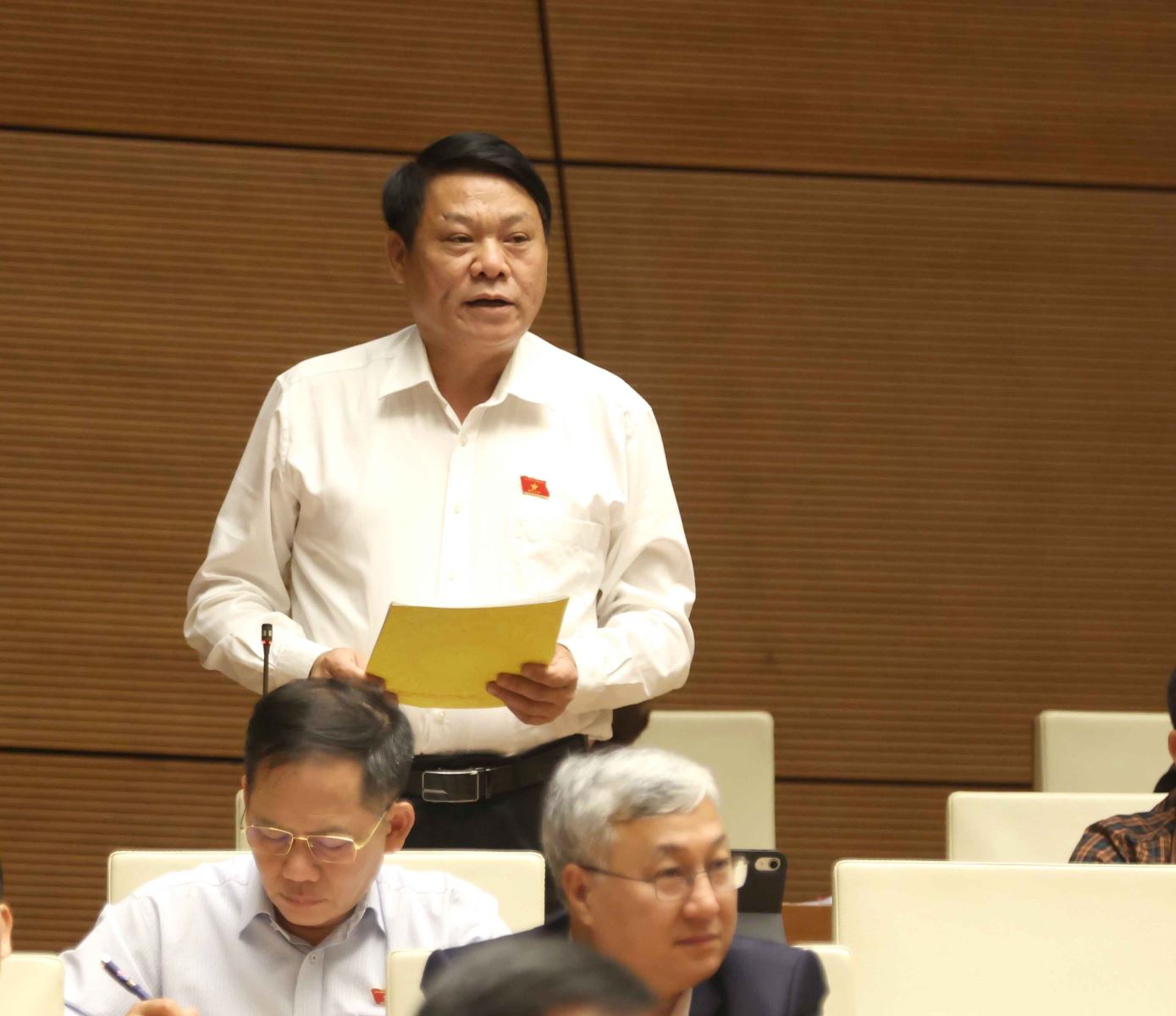
National Assembly Delegate of Phu Tho province Nguyen Thanh Nam speaks at the Hall.
Specifically, amend and supplement the provisions on the Vietnam Fatherland Front and socio-political organizations in Article 9; on Vietnam trade unions in Article 10; provisions on the right to submit draft laws and draft ordinances of socio-political organizations in Clause 1, Article 84; administrative organizations and units in Article 110; provisions on local governments in Article 111 of the Constitution.
The Vice Chairman of the Committee on Law and Justice also said that the National Assembly is considering amending, supplementing and passing at the 9th Session many other laws and resolutions to ensure synchronous implementation with the amended contents of the Constitution, such as the Law on Organization of Local Government (amended); Law on Cadres and Civil Servants (amended); Law on amending and supplementing a number of articles of the Law on promulgation of legal documents...
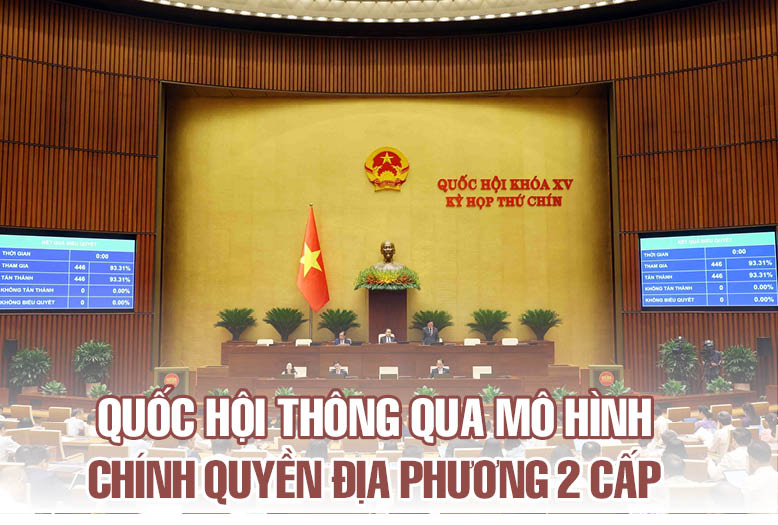
Based on the Resolution of the National Assembly on amending and supplementing a number of articles of the Constitution, on June 16, 2025, the National Assembly passed the Law on Organization of Local Government (amended) to serve as a basis for the Government as well as relevant ministries, branches and central agencies to issue legal documents, guidance and direction documents to implement the organization of the 2-level local government model in Vietnam from July 1, 2025.
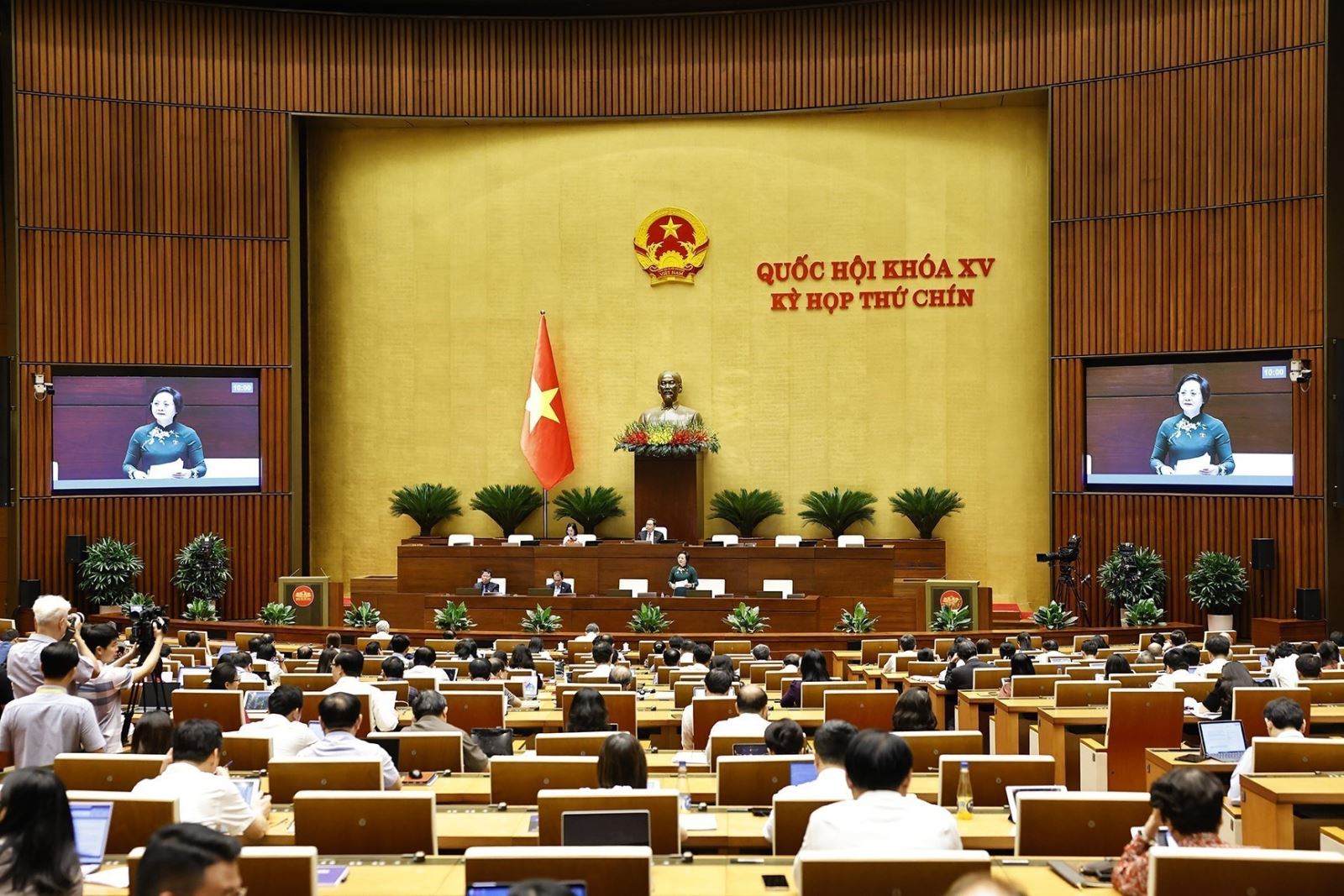
Minister of Home Affairs Pham Thi Thanh Tra spoke to explain and clarify a number of issues raised by National Assembly deputies.
Minister of Home Affairs Pham Thi Thanh Tra said: The Law consists of 7 chapters and 54 articles. Accordingly, after the reorganization, Vietnam has 34 provincial-level administrative units, including 6 centrally-run cities and 28 provinces; there are 3,321 commune-level administrative units, including 2,621 communes, 687 wards and 13 special zones.
The Law has perfected the principles of decentralization and delegation of authority between the Central Government and local governments and between local government levels in a scientific, synchronous and unified manner; clearly delineating the authority between the People's Committee and the individual Chairman of the People's Committee. Thereby creating conditions for building a flexible and effective management mechanism, encouraging the initiative and creativity of the heads of local state administrative agencies.
Also according to Minister Pham Thi Thanh Tra, the Law specifically stipulates the empowerment of the Chairman of the Provincial People's Committee, if necessary, to directly direct the resolution and management of issues under the authority of subordinate agencies, with the goal of not allowing the resolution of work and administrative procedures for people and businesses to be delayed or congested, or ineffective.
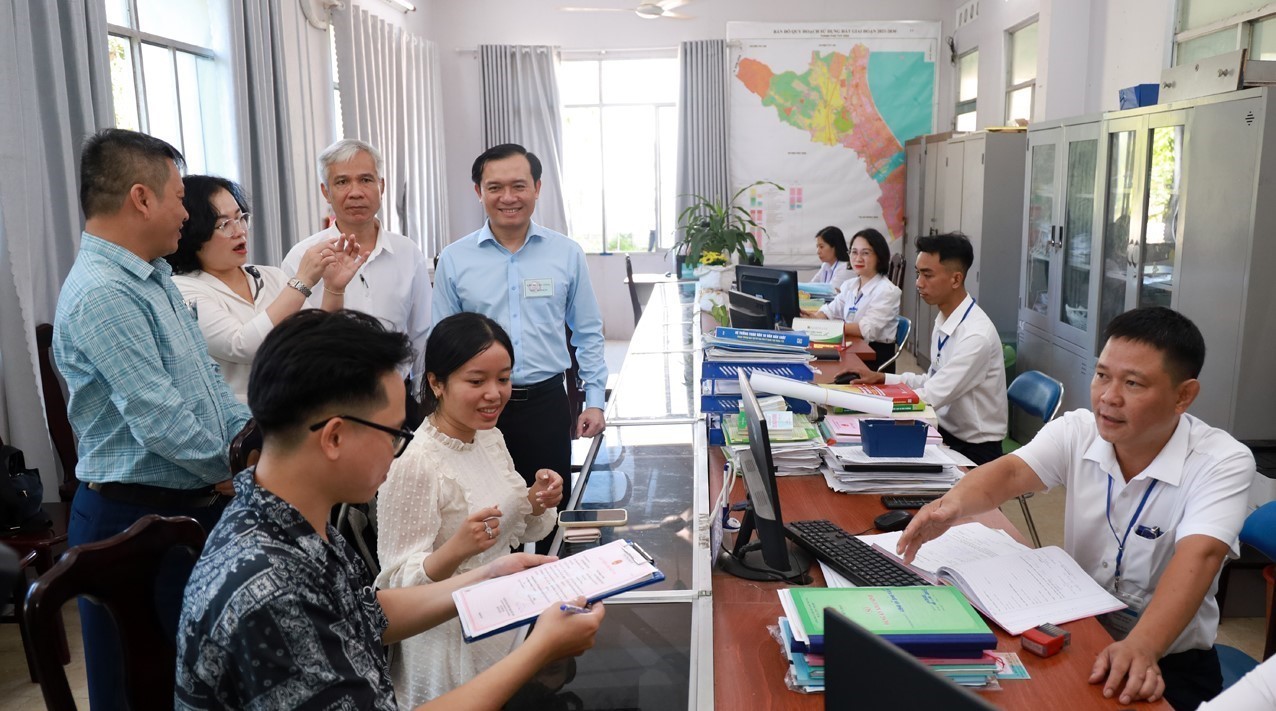
Citizens come to carry out administrative procedures during the pilot operation of the two-level local government model in Binh Kien ward (Phu Yen province).
Regarding the preparation for organizing the new local government model, Minister Pham Thi Thanh Tra said that Vietnam has taken many "synchronous, strict and comprehensive" steps, including: Completing the legal basis from the Constitution to sub-law documents; developing a reasonable staff arrangement plan, focusing on capacity and experience, especially at the new commune level; investing in physical facilities and digital infrastructure to ensure interconnected administrative procedures; promoting propaganda to create high consensus among the people.
Despite initial difficulties such as completing a large volume of legal documents in a short time, affecting the mindset of officials and civil servants when streamlining the apparatus, challenges in improving commune-level capacity and people's concerns about changing administrative procedures, the Minister of Home Affairs affirmed that the Government has solutions, committing that "administrative procedures must not be interrupted, but must be continuous".
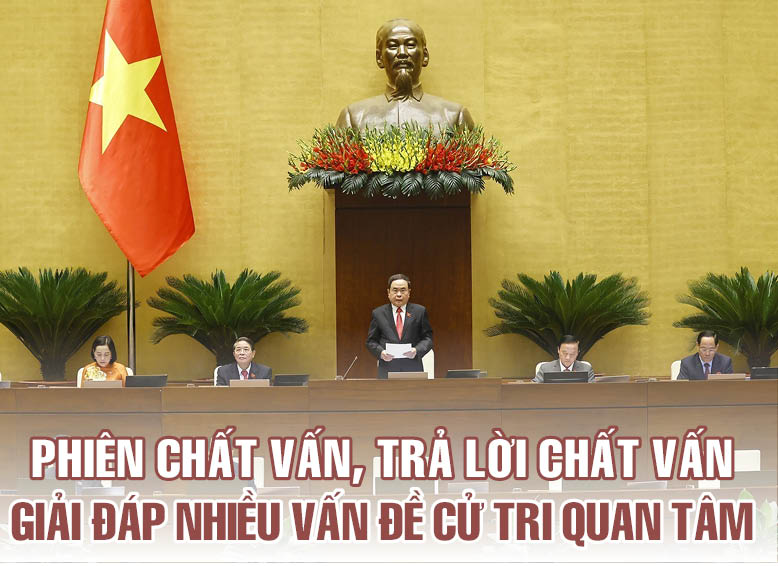
On the morning of June 20, after 1.5 days of urgent, serious and highly responsible work, the National Assembly completed the program of question and answer sessions at the Session.
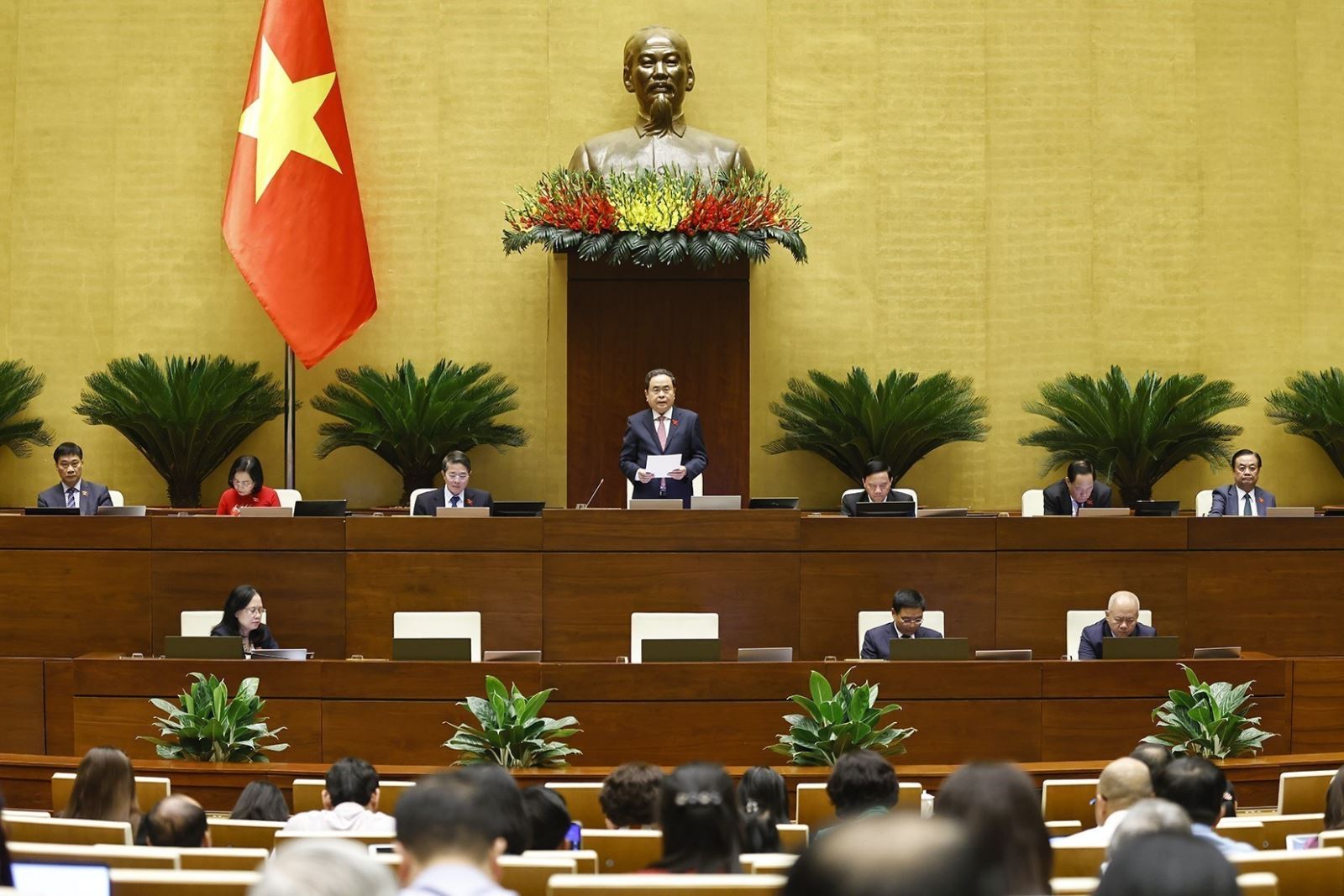
National Assembly Chairman Tran Thanh Man delivered a closing speech on the question-and-answer session on financial matters.
Speaking at the end of the question-and-answer session, National Assembly Chairman Tran Thanh Man requested the Government, Ministers and heads of sectors to fully absorb the opinions of National Assembly deputies, concretize them with actions and policies, aiming to substantially improve people's lives, enhance the endogenous capacity of the economy and build a practical and substantive education system.
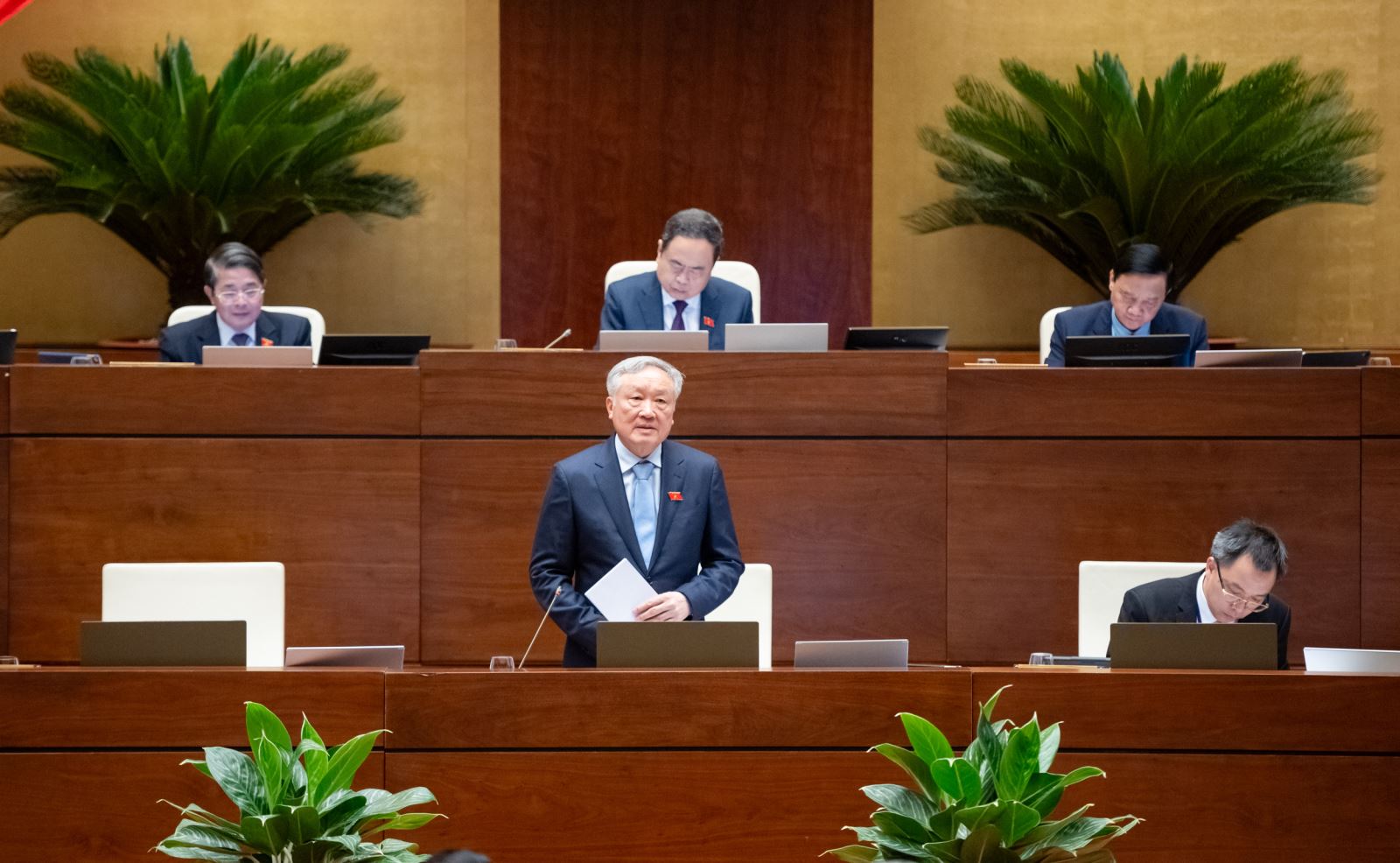
Permanent Deputy Prime Minister Nguyen Hoa Binh participated in answering questions from National Assembly deputies.
The National Assembly Chairman said that the two groups of issues selected for questioning this time are important, directly affecting macroeconomic stability, people's lives and the future development of the country. At the questioning session, 97 delegates spoke and 17 delegates debated. Also participating in the questioning were Deputy Prime Minister Ho Duc Phoc; Minister of Health Dao Hong Lan; Governor of the State Bank Nguyen Thi Hong. Permanent Deputy Prime Minister Nguyen Hoa Binh, on behalf of the Government, reported to clarify and directly answered questions from National Assembly delegates.
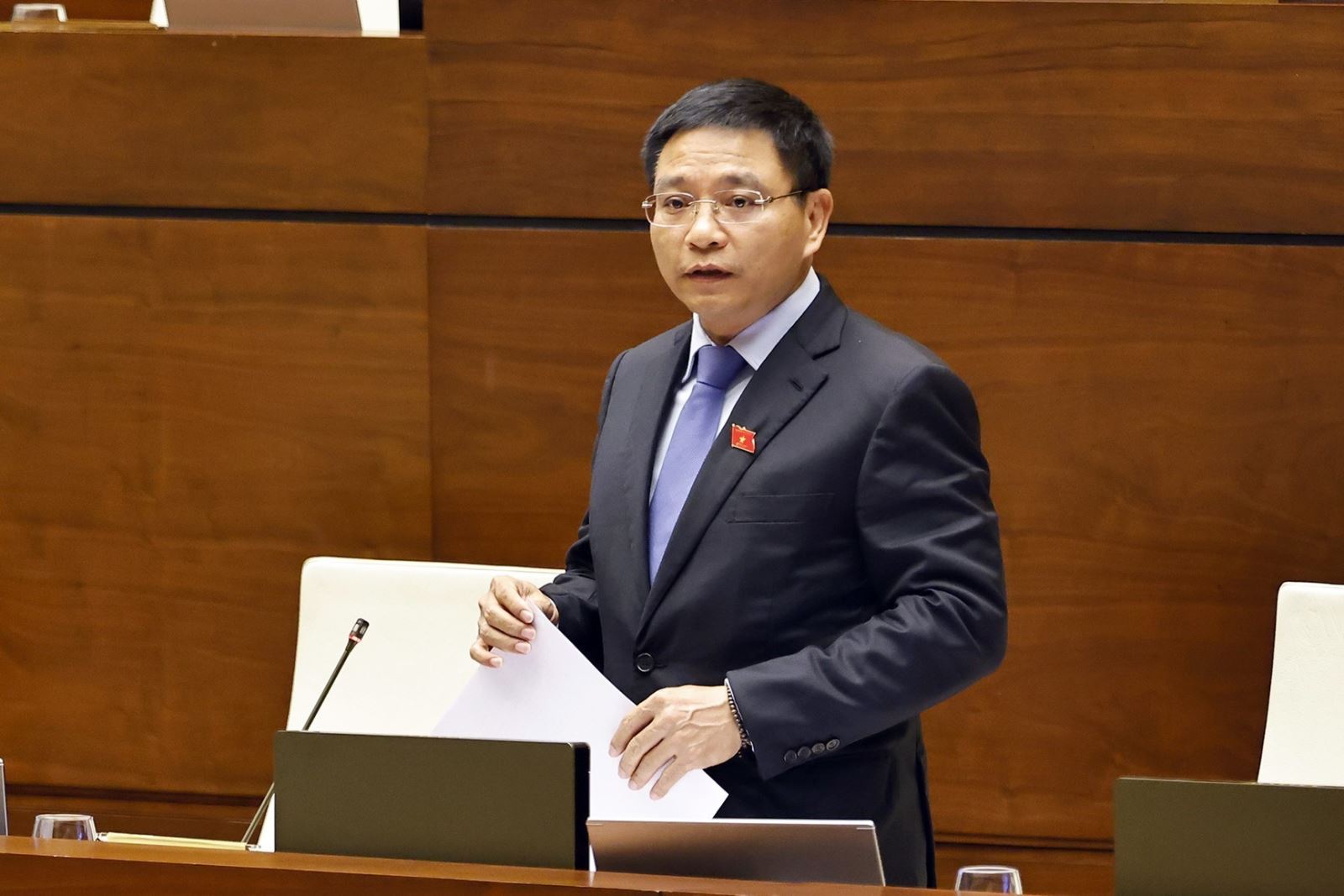
Minister of Finance Nguyen Van Thang answers questions before the National Assembly.
Through the question and answer session at the meeting, it was shown that the questions met practical requirements, were "correct" and "hit" the issues that voters, people and National Assembly deputies were concerned about. The atmosphere in the parliament was lively, frank, in a constructive spirit, with high responsibility. The basic questions were within the scope of the question and answer session, specific and clear, most of the deputies only raised one issue, using the maximum time for questioning.
Many questions focused on institutional and practical issues and the hope that the Government, ministries and branches would continue to innovate, be decisive, and have appropriate and effective solutions for the rapid and sustainable development of the country, meeting the trust and expectations of voters and people nationwide. The Ministers demonstrated a spirit of openness, responsibility, and a firm grasp of the situation, did not avoid it, answered directly to the issue and made commitments and specific solutions in the coming time.
The basic contents were concluded at two question and answer sessions for each field. The National Assembly Chairman stated that the National Assembly Standing Committee will direct relevant agencies to prepare draft resolutions, seek opinions from National Assembly deputies and submit them to the National Assembly for consideration and approval at the closing session of the session, as a basis for organizing and supervising implementation.
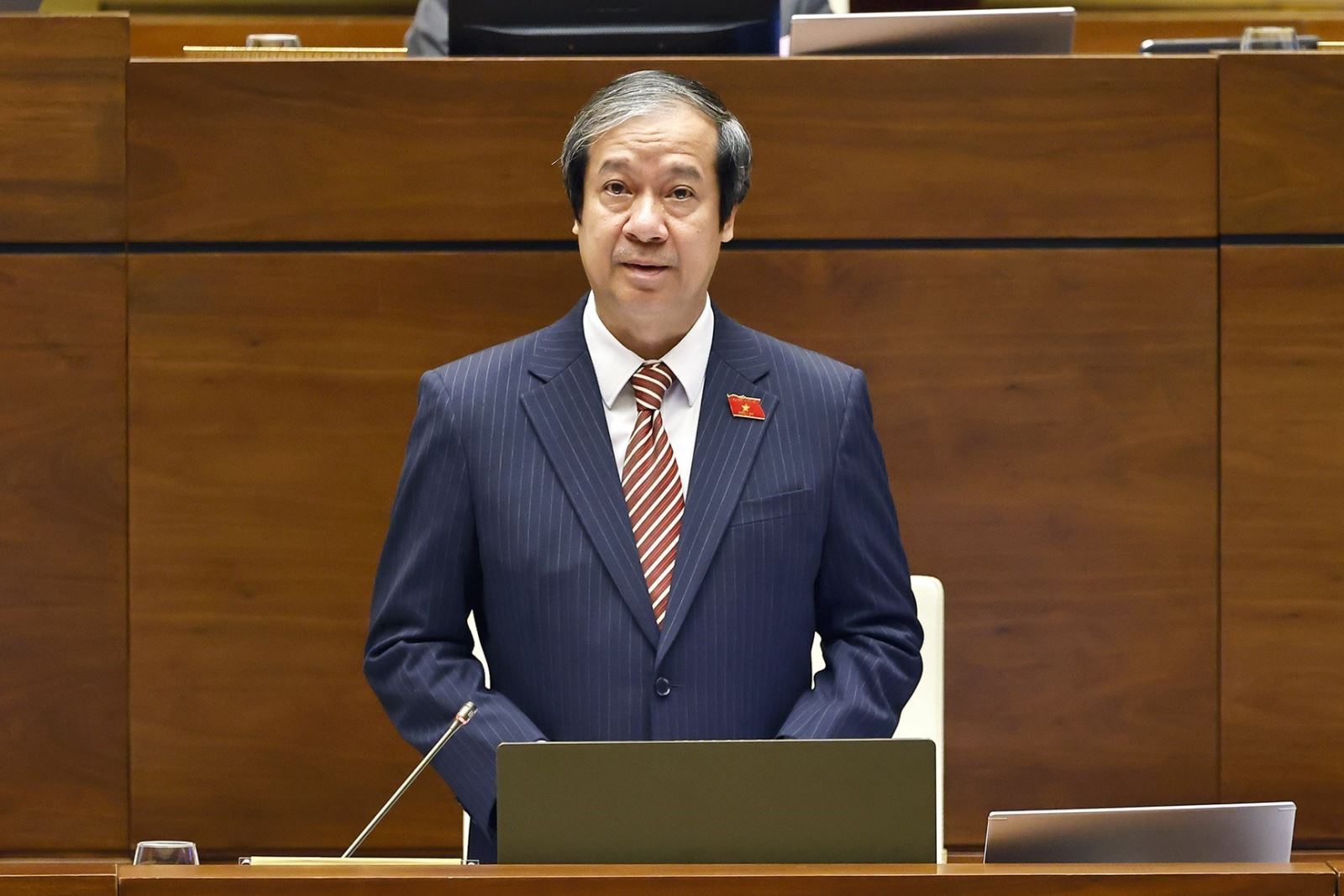
Minister of Education and Training Nguyen Kim Son answers questions before the National Assembly.
According to the National Assembly Chairman, at the 10th National Assembly Session in October 2025, in accordance with the Law on Supervisory Activities of the National Assembly and People's Councils, the National Assembly will consider reports of agencies on the implementation of a number of resolutions of the 14th and 15th National Assemblies on interpellation and thematic supervision.
“This is a 're-supervision' activity, demonstrating the responsibility of the National Assembly in monitoring and supervising to the end the contents that have been monitored and questioned. The Government, ministries and branches are requested to prepare reports; the National Assembly agencies need to innovate the way of examining reports to accurately assess the level of completion of the implementation of resolutions; National Assembly deputies monitor, supervise, research and carefully study related issues to question,” the National Assembly Chairman emphasized.
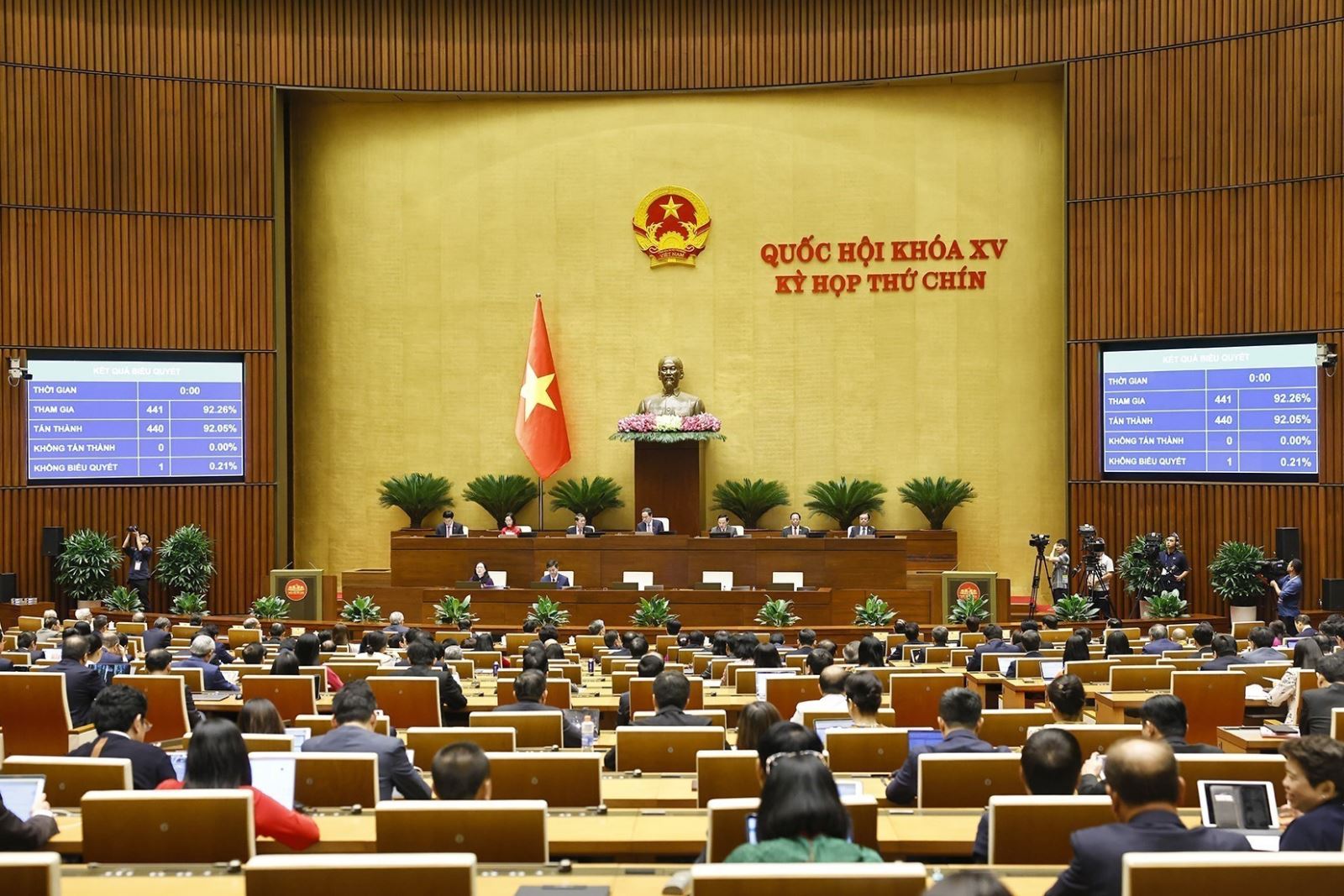
On the morning of June 27, 2025, the National Assembly voted to pass the Resolution of the National Assembly on questioning activities at the 9th Session of the 15th National Assembly.
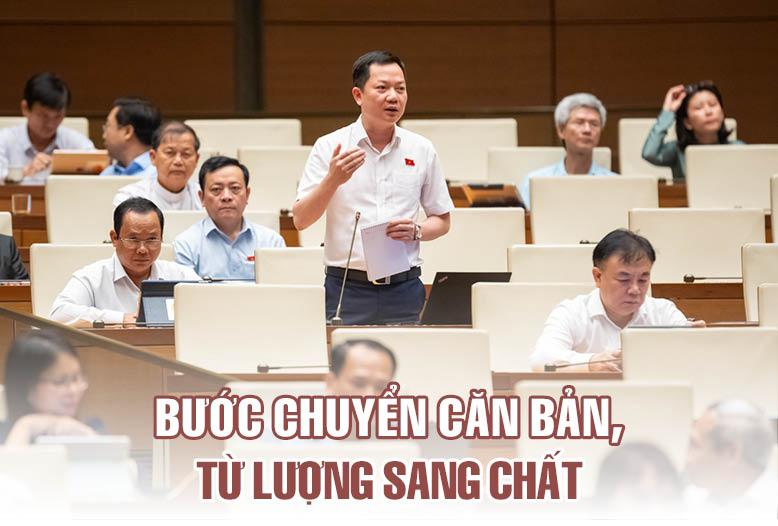
Thus, after 35 working days, the 9th Session of the 15th National Assembly has ended. Evaluating this session, in the hallway of the National Assembly, many delegates expressed their joy, saying that this is one of the sessions that demonstrates the most innovative, creative, and breakthrough thinking in history with many major decisions aimed at serving the prosperous and happy life of the people, bringing the country to develop in the new situation.
According to delegate Nguyen Ngoc Son (National Assembly Delegation of Hai Duong Province), this session marked a fundamental shift from quantity to quality. Government agencies and the National Assembly have worked day and night to resolve very new and unprecedented issues. However, the National Assembly has still deployed and carried out its work very actively, effectively and with real quality.
Delegate Nguyen Ngoc Son emphasized: The session achieved a record high in resolving and amending many draft laws to promptly handle urgent issues and put them into practice, such as: Laws related to the investment sector; related to the implementation of the 2-level local government model... All of these demonstrated the proactiveness, flexibility, and timeliness of the National Assembly in institutionalizing the Party's requirements and policies on national development in the new situation.
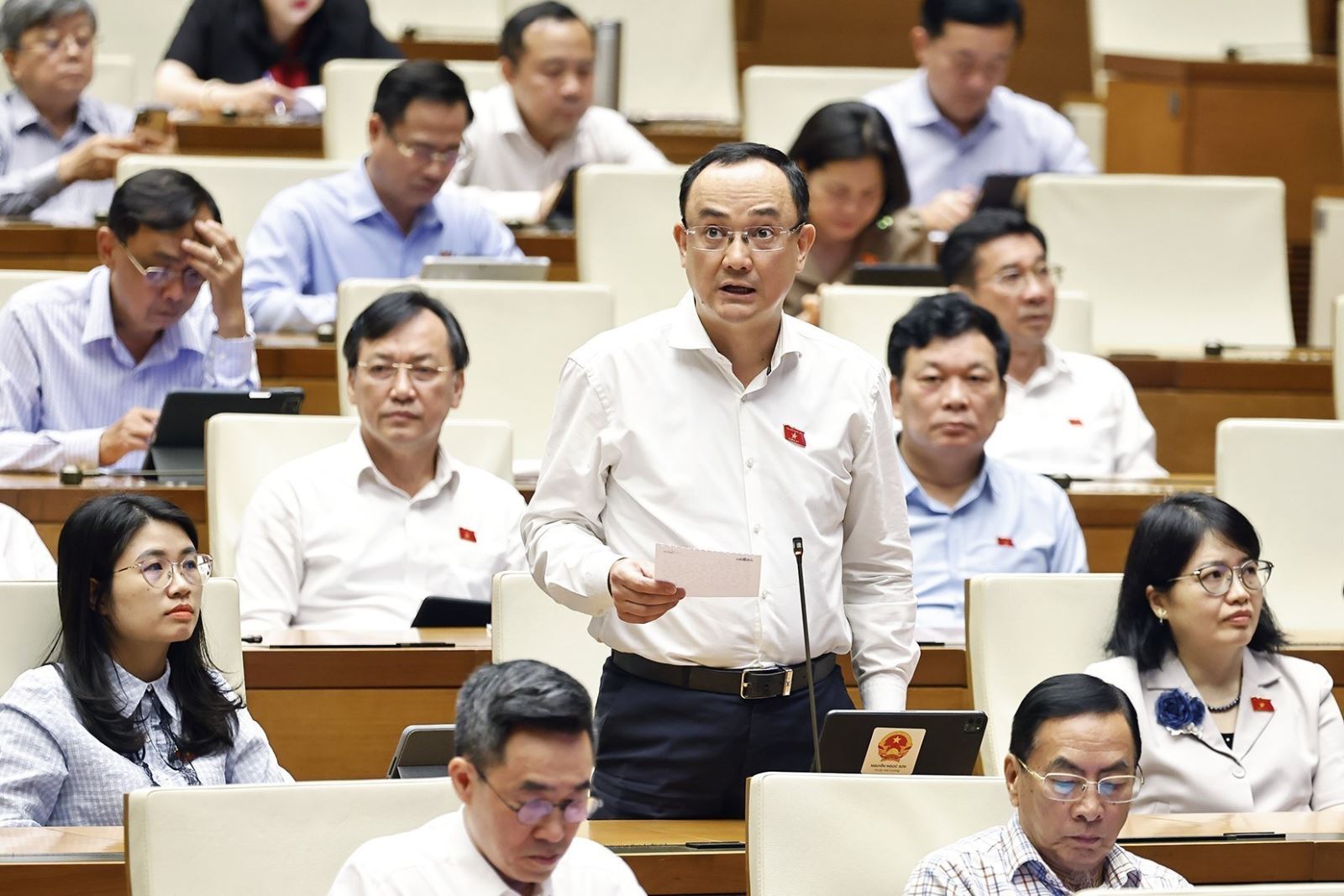
National Assembly delegate of Hai Duong province Nguyen Ngoc Son speaks before the National Assembly.
In addition, delegate Nguyen Ngoc Son also said that the flexibility in handling the work of the National Assembly is also demonstrated through the amendment of laws. The National Assembly has based on the actual situation to flexibly amend the whole law, amend a part of it or amend a certain law to suit the actual requirements. This is an innovative and creative way to ensure the implementation of policies with high feasibility. This is also the fundamental and outstanding new point of this Session.
Assessing the spirit and responsibility of the National Assembly and National Assembly deputies, Deputy Nguyen Ngoc Son said that the working spirit of the National Assembly and National Assembly deputies at the Session was very responsible, positive, urgent and scientific. These factors contributed to the Session's many successes.
According to delegate Ta Van Ha (Quang Nam Province National Assembly Delegation): This session has completed all the program contents and set goals. This is one of the most important sessions in history. At the session, in addition to passing 34 laws and 34 resolutions, the National Assembly also gave opinions on 6 other draft laws and decided on many important issues, laying the foundation for the country to enter a new era, an era of national development. The decisions at the session demonstrated the determination of the Party and State in reforming the administrative apparatus, affirming the people's and the political system's trust in the leadership of the Party. This also demonstrated the aspiration to rise up and develop of the entire Vietnamese nation.
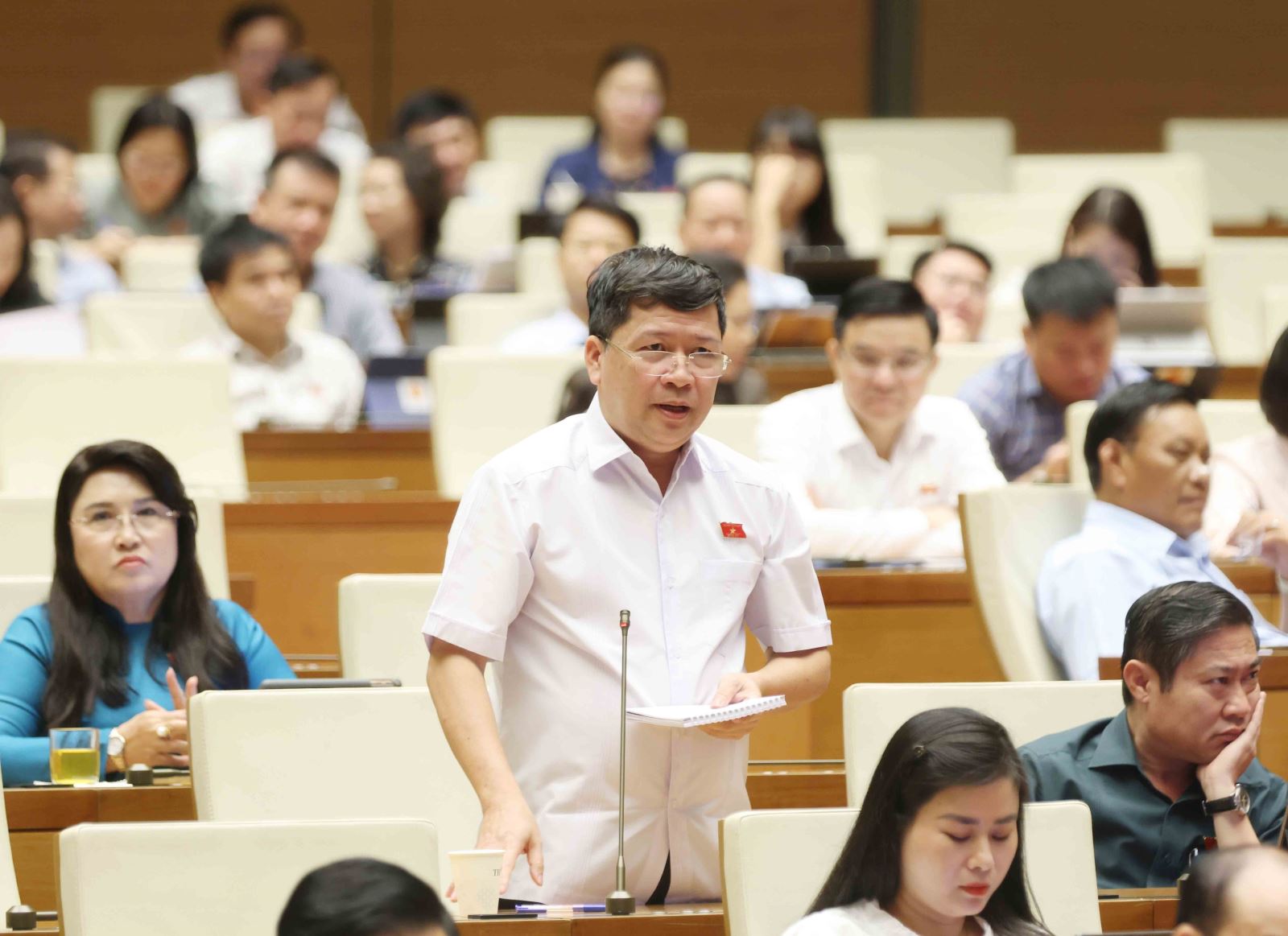
Quang Nam Province National Assembly Delegate Ta Van Ha speaks before the National Assembly.
According to delegate Le Dao An Xuan (National Assembly Delegation of Phu Yen Province): This session has demonstrated high unity and solidarity towards the country's major decisions. The National Assembly has shown an important role in promptly institutionalizing decisions, quickly bringing decisions into life, serving the people, serving the country's development goals.
The working spirit of the National Assembly and its deputies is responsible and urgent in the context of the country's changes. The decisions passed by the National Assembly will be a solid foundation for the Government to carry out the tasks of national development and will soon be effectively implemented by local authorities at all levels, serving the lives of the people, especially in the context of implementing the 2-level local government model.
“In addition to restructuring the apparatus, at the Session, the National Assembly paid attention to promoting areas related to social security, education, health care and economic development issues related to the lives of each family, business households and enterprises... creating a complete ecosystem for economic development and social security, improving the quality of life of the people. National Assembly deputies believe that in the coming time, the Government will successfully carry out the tasks set out to develop the economy and society, improving the lives of the people,” said delegate Le Dao An Xuan.
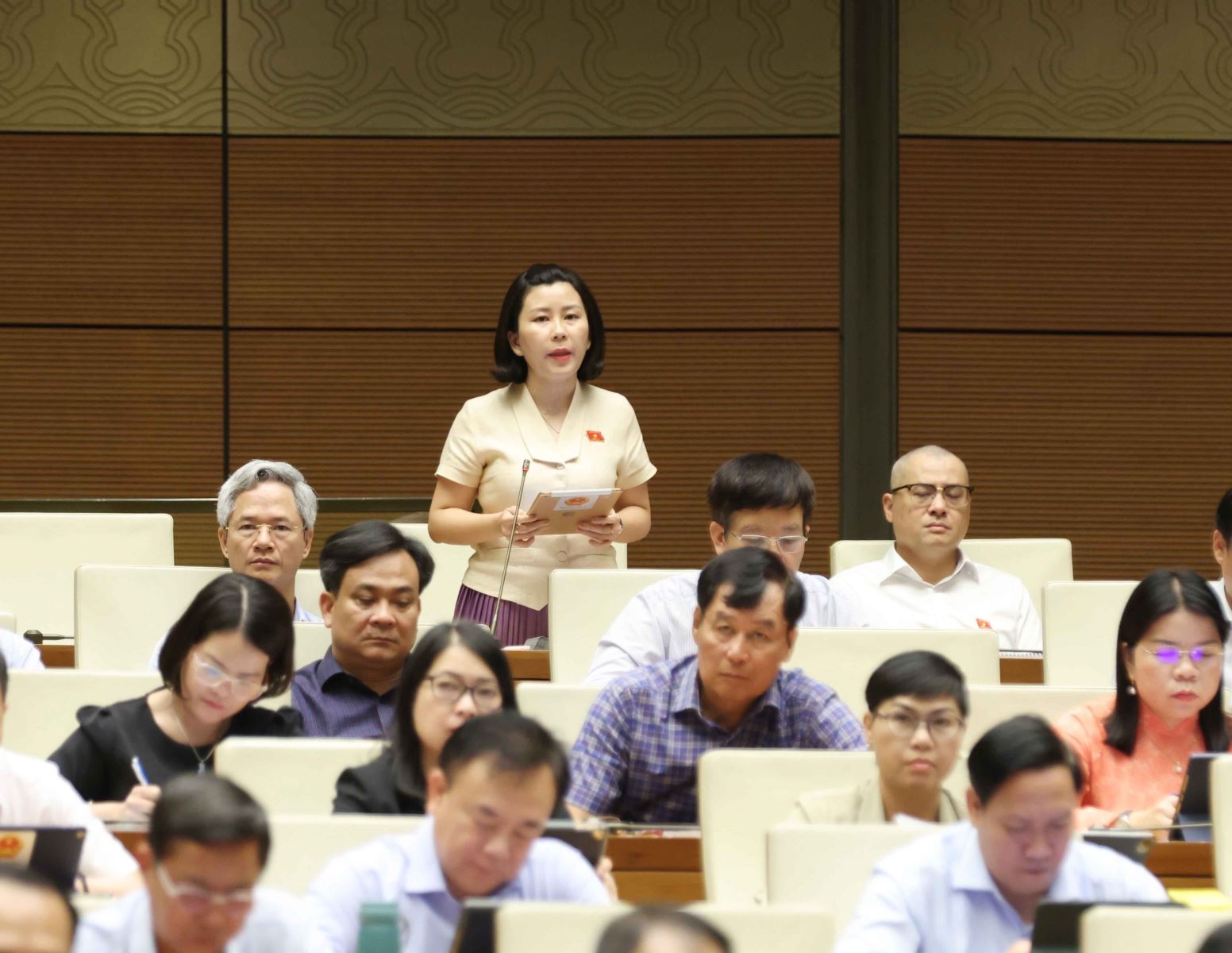
National Assembly Delegate of Phu Yen province Le Dao An Xuan speaks.
Also at this Session, with 430 delegates participating in the vote and approving, equal to 100% of the total number of National Assembly Deputies present, the National Assembly voted to approve the list of candidates for Mr. Tran Thanh Man, Politburo member, National Assembly Chairman as Chairman of the National Election Council.
Delegate Trinh Thi Tu Anh (National Assembly Delegation of Lam Dong Province) hopes that the adopted policies will not only serve the country's development goals, but also effectively serve the people's social security needs. In the coming time, the Government and local authorities will successfully implement the policies approved by the National Assembly to promptly put them into practice.
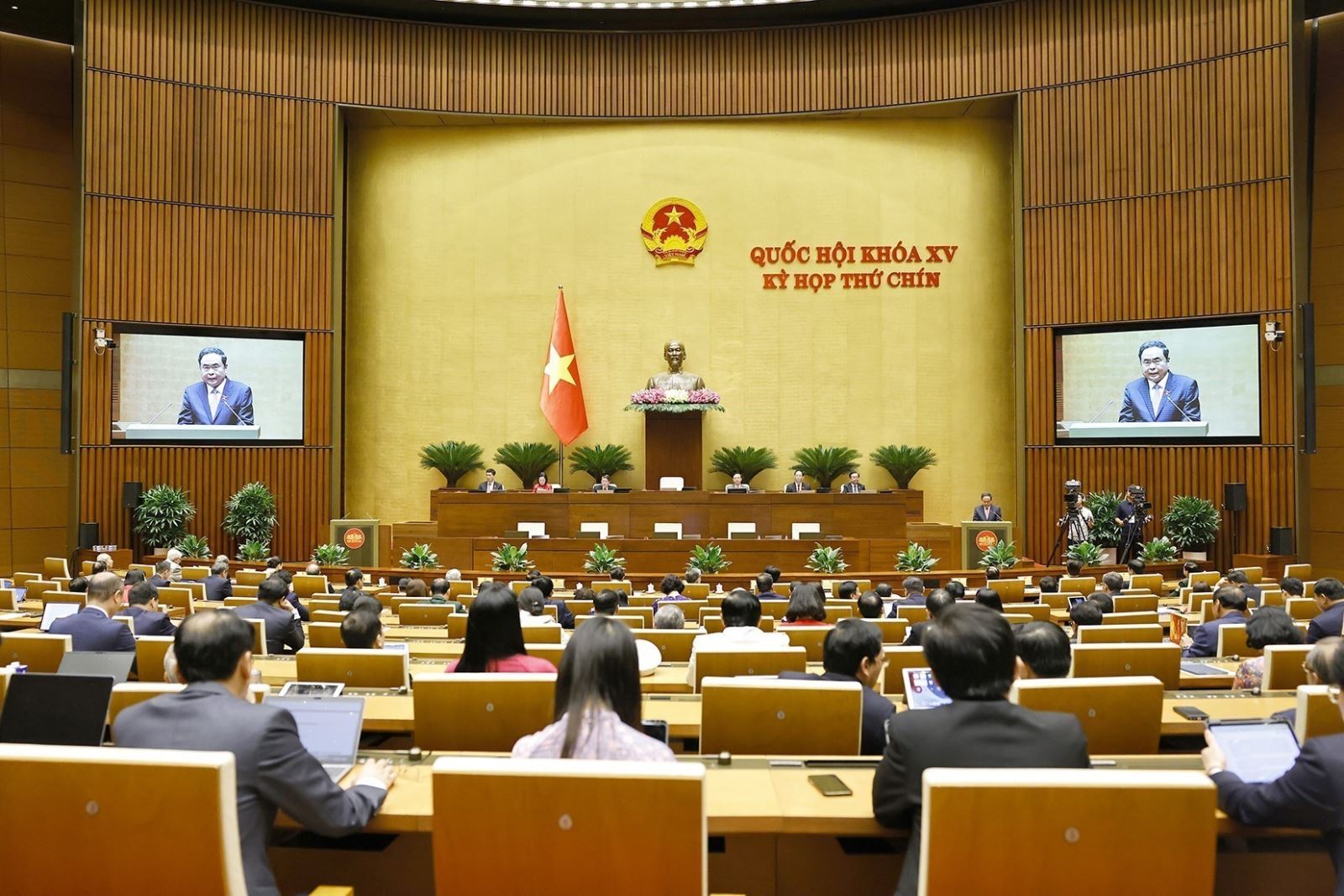
National Assembly Chairman Tran Thanh Man delivered a closing speech at the 9th Session of the 15th National Assembly.
Article: Thai Binh
Video: Chi Binh
Photo: VNA
Presented by: VT
Source: https://baotintuc.vn/long-form/thoi-su/ky-hop-thu-9-quoc-hoi-khoa-xv-ky-hop-lich-su-20250627114004166.htm




![[Photo] President Luong Cuong receives President of the Senate of the Czech Republic Milos Vystrcil](/_next/image?url=https%3A%2F%2Fvphoto.vietnam.vn%2Fthumb%2F1200x675%2Fvietnam%2Fresource%2FIMAGE%2F2025%2F11%2F20%2F1763629737266_ndo_br_1-jpg.webp&w=3840&q=75)

![[Photo] National Assembly Chairman Tran Thanh Man holds talks with South Korean National Assembly Chairman Woo Won Shik](/_next/image?url=https%3A%2F%2Fvphoto.vietnam.vn%2Fthumb%2F1200x675%2Fvietnam%2Fresource%2FIMAGE%2F2025%2F11%2F20%2F1763629724919_hq-5175-jpg.webp&w=3840&q=75)
![[Photo] Lam Dong: Panoramic view of Lien Khuong waterfall rolling like never before](/_next/image?url=https%3A%2F%2Fvphoto.vietnam.vn%2Fthumb%2F1200x675%2Fvietnam%2Fresource%2FIMAGE%2F2025%2F11%2F20%2F1763633331783_lk7-jpg.webp&w=3840&q=75)
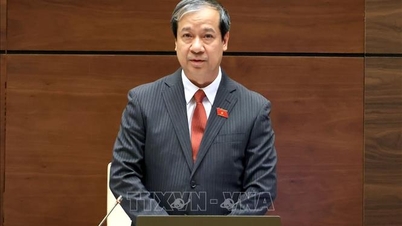
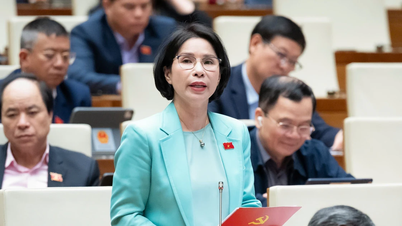

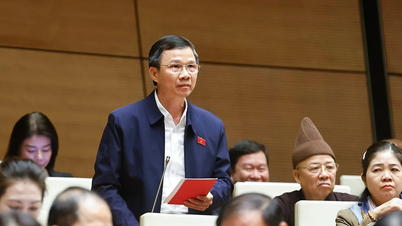
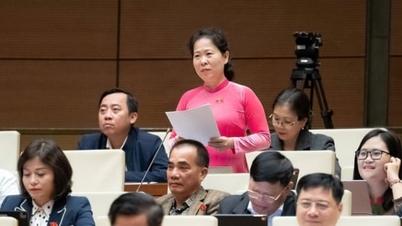


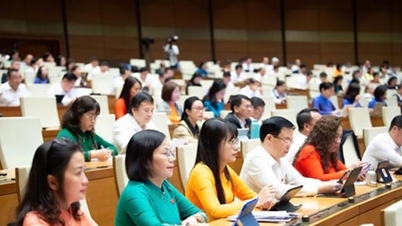

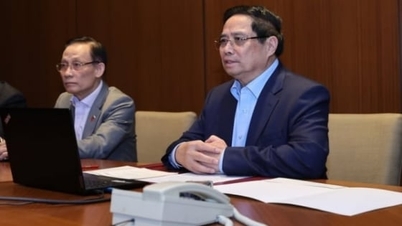

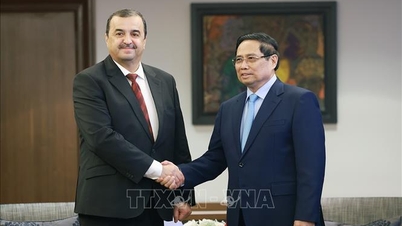
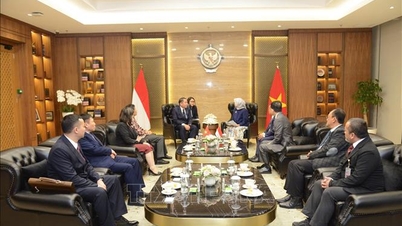
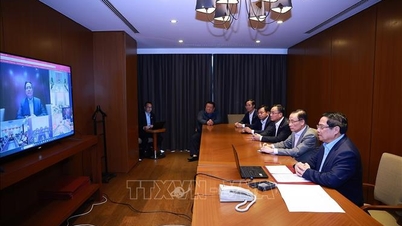
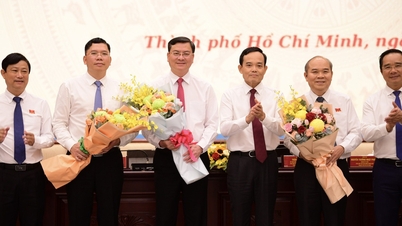





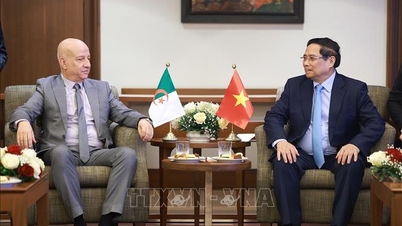
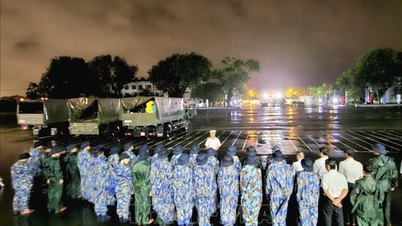

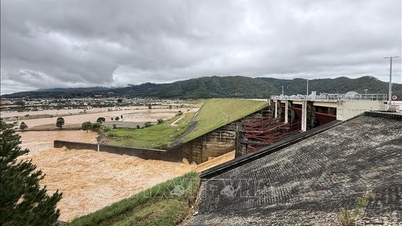
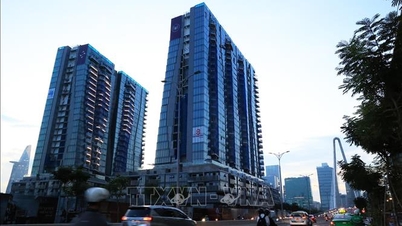
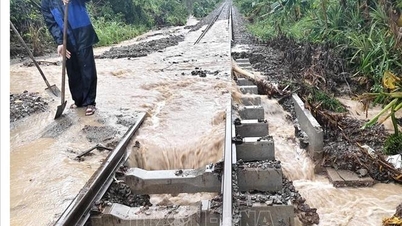


















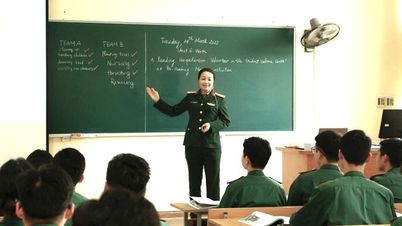


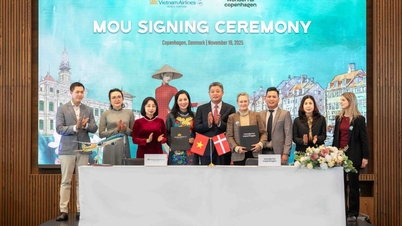















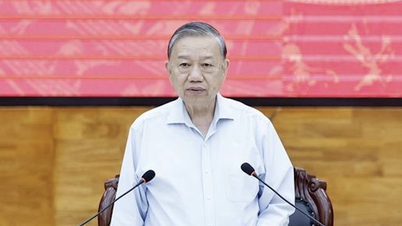


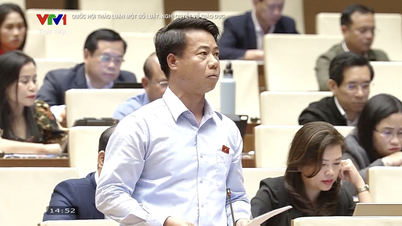






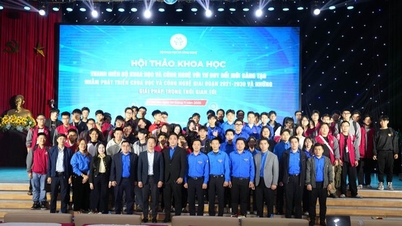

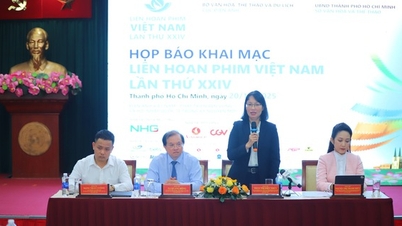

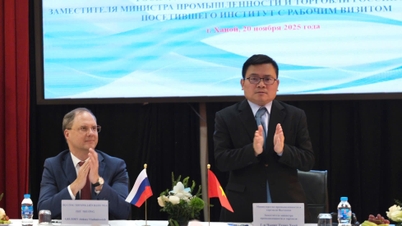

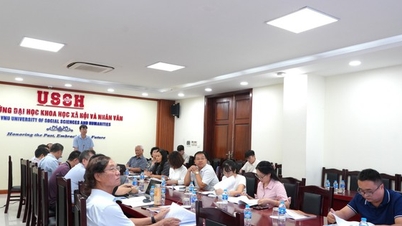






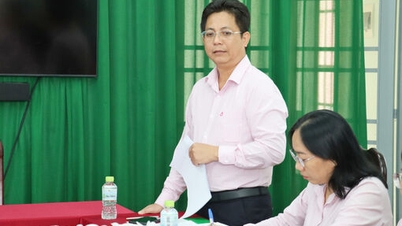




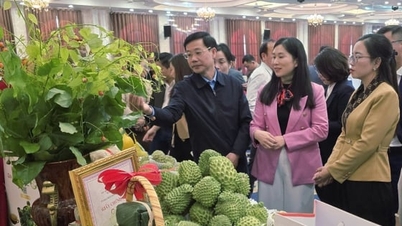











Comment (0)